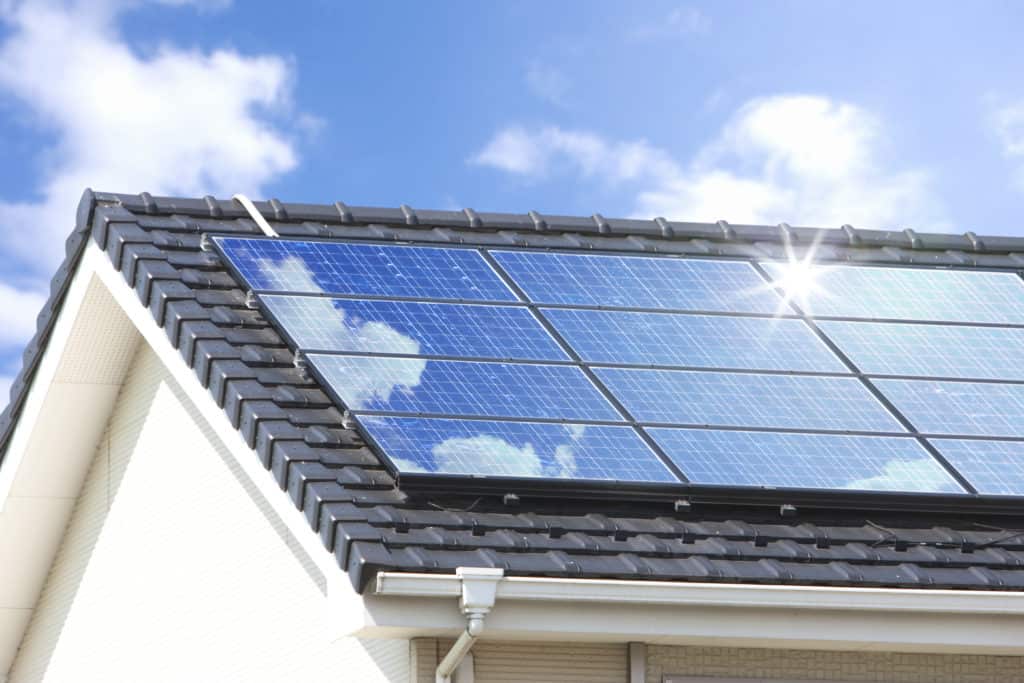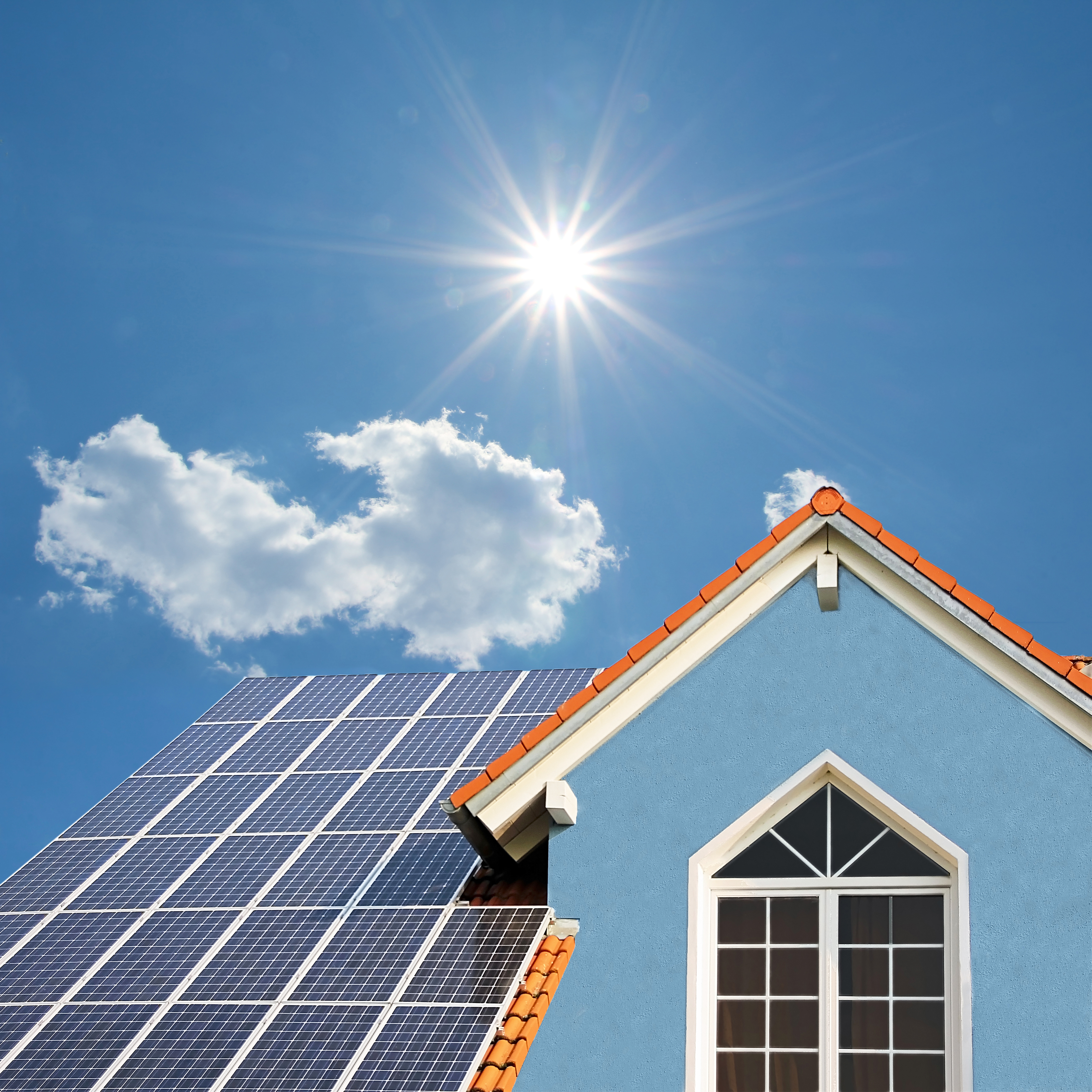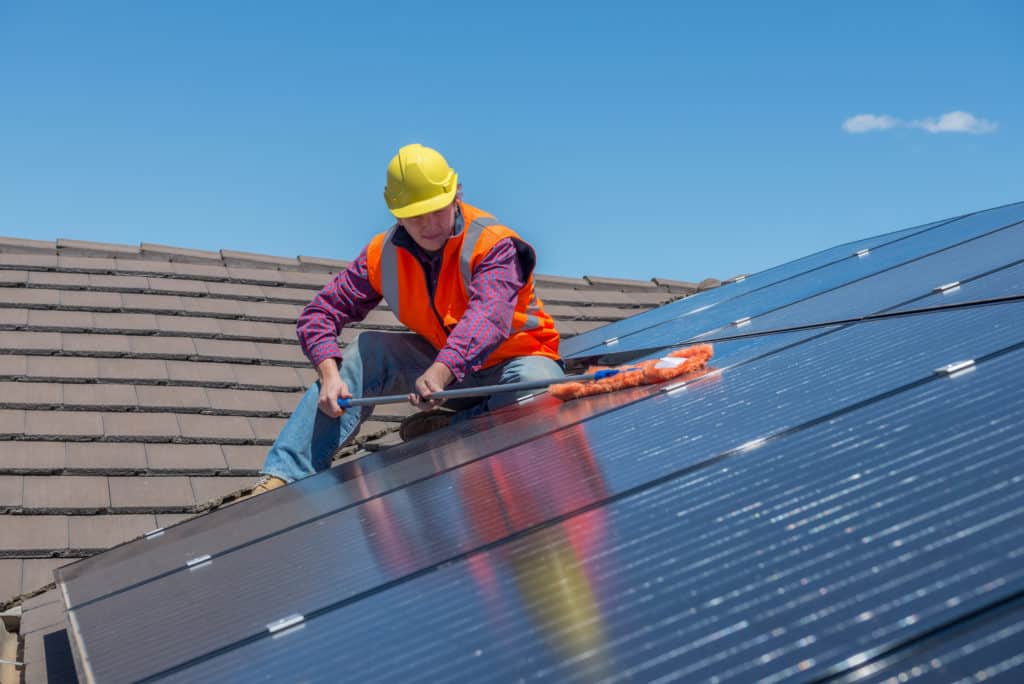
Solar power is awesome if you want to go the environmentally friendly route. But can it power your AC unit?
It is possible to power your air conditioning unit with solar panels, but it is not terribly practical. If you want to run your air conditioner with solar power, it is both cheaper and more conservative in the long run if you purchase enough panels to power your entire home.
Don’t be intimidated by the statistics! While it may be more expensive up front, solar power may be the perfect option for you and your home. Here is what you need to know.
Why it’s not practical
To buy only enough solar panels to power your air conditioning unit is not practical because you will have to separate the electric circuit for your AC unit from the rest of your house. You will then have to purchase a battery powered, off-grid solar system which will ensure that your AC unit gets all the power it needs, even on cloudy days. Since the solar panels have been isolated to work only for the AC unit, you will have wasted them and possibly energy that could have gone towards the rest of your house.
Installing solar for only AC does not make a whole lot of sense for these reasons. If you really want to go solar, it is wiser to install a system powerful enough for your entire house. This way, you are using cleaner energy for more than just your AC, plus the solar panels won’t go to waste in the colder months. An additional perk is, the extra power generated in the summer (which is when solar panels work the hardest) will be fed to the electric company during the winter which will accumulate in credit for you. You can then use the earned credit in the summertime to pay your electric bills.
Is Solar AC Right for You?

Sometimes traditionally based energy sources are the best way to go. An off-grid house is a home that does not have to rely on public utilities such as energy and water. For houses like these, solar energy is often the better way to go.
Solar power definitely has pros and cons. Here are a few to consider. Possibly the greatest thing about solar power is that it uses a resource that is pretty much always available to us: sunlight. You do not need to pay a power company for panels fitted on your roof drawing power from the sun. Depending on where you live, utilizing solar energy could drastically decrease your electric bill if not terminate it altogether.
Aside from providing clean energy and not having to rely on a power company, solar power does not have to be connected to the grid. Why is this a good thing? When a storm takes out the power lines and with it, everybody’s electricity, you may be saved the trouble if you are living off of solar power; your AC will not be affected. There are fewer disruptions in general with solar power which is nice. A solar powered AC unit will also require less maintenance than a traditional one will. While you might have to replace a traditional unit every 10-15 years, solar panels only need replacement every 30-45 years unless physically damaged somehow.
All this sounds pretty great. However, there are still a number of cons to be aware of before settling on solar AC. Solar panels can usually store up enough energy to run at night, but this is not always the case. This is especially irritating when it comes to air conditioning because there is nothing worse than sleeping in a hot house. It can also be a risky gamble depending on where you live. Electric and power companies are threatened by solar energy, therefore some states have been kind of slow on the uptake of solar.
Also, depending on where you live, you will have to depend on the weather to have your solar panels at optimal performance. Cloudy and rainy days can often dampen your chances of having an efficient power supply. Additionally, the up front cost of both purchasing and installing the solar panels can be too much for some people. If you live in a prime location with plenty of solar access, you will be saved lots of money in the long run, but that isn’t always the case. Make sure the expenses are worth it before diving in headfirst.
Installation and maintenance

It is possible to install solar panels yourself, but utilizing the skillset of a professional is advisable. Installation requires some assembly, a few days dedicated to construction, drilling and fitting lag bolts, plus all the electrical work. If you do your homework and commit to not cutting corners, self-installation should not be a problem. However, for those who are intimidated by the workload, hiring a professional is probably a better way to go.
Thankfully, solar panel maintenance is not terribly difficult. There are a few risks to be aware of, however. Do not come into contact with any wiring for any reason. Doing so can result in major electrocution and possibly even death, depending on the severity of the shock. If, for any reason, the surface of your panel(s) is cracked, touching that can also lead to injury; so, handle everything with care and get any issues resolved as soon as possible (another reason why hiring a professional might be wise).
In order to ensure optimal performance, your panels need to remain clear and as clean as possible. Debris and dirt buildup will happen every so often. If your panels are installed at an angle, rain will help wash away most of the grime that accumulates. Still, it is advisable to give the panels a quick spray with your garden hose or leaf blower to get rid of any remaining debris. You will also want to take extra care during the winter as you will probably find a lot of snow accumulating on top of the panels. If and when this happens, take a few minutes to shovel or wipe the snow away.